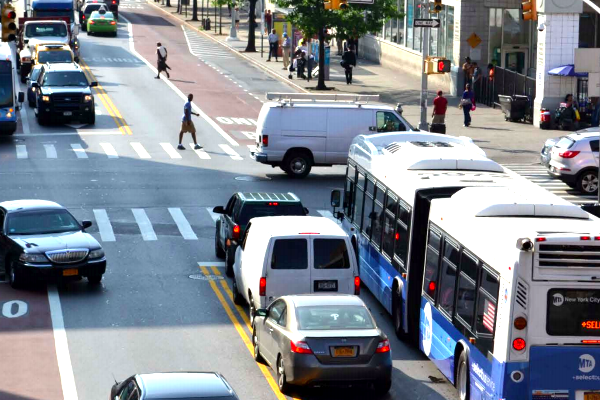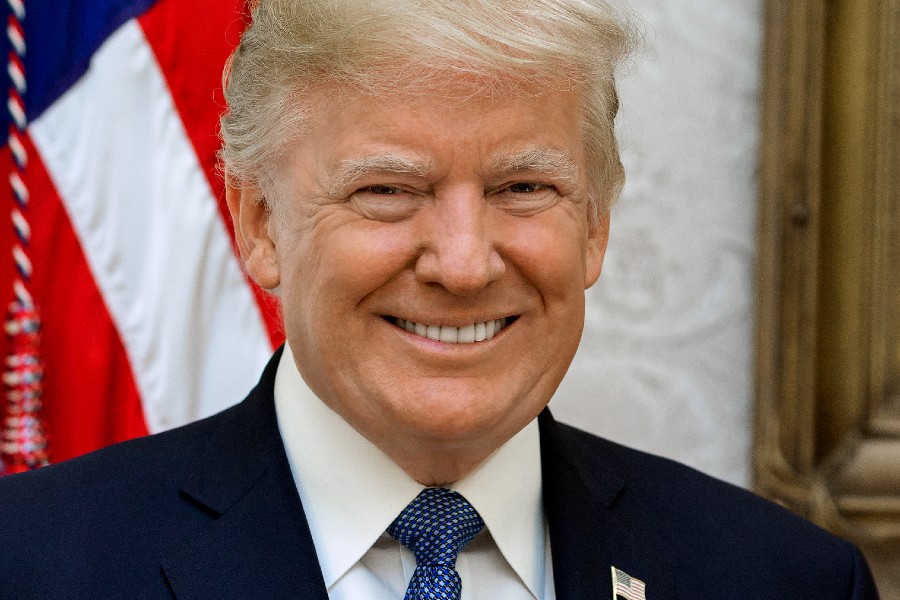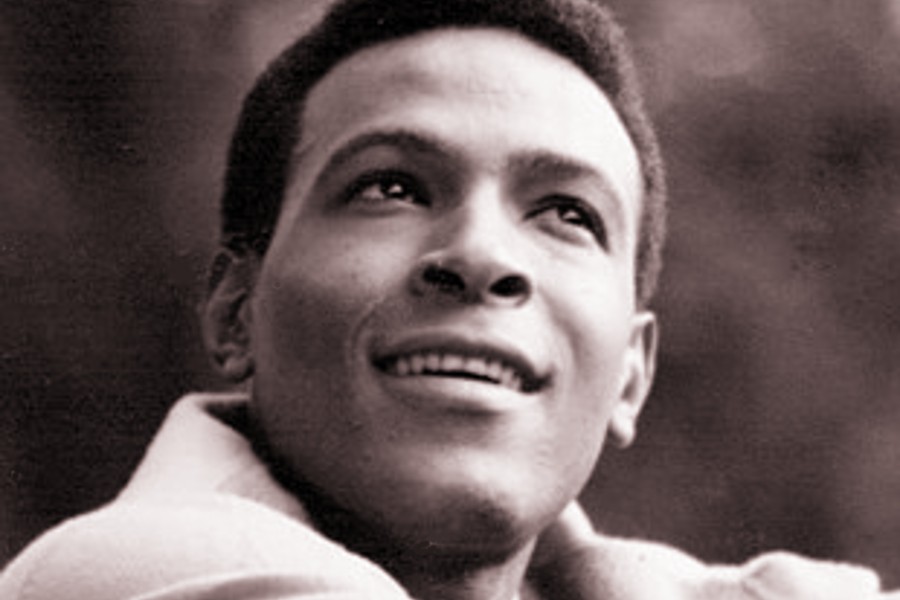 The New York Community Trust has announced $9.9 million in grants to 53 nonprofits, so they can make progress in the fight against COVID-19 and help the city become more resilient and equitable.
The New York Community Trust has announced $9.9 million in grants to 53 nonprofits, so they can make progress in the fight against COVID-19 and help the city become more resilient and equitable.
Among other things, these grants will help ensure more people get COVID-19 vaccinations and participate in this year’s high-stakes local elections, and help low-income neighborhoods get reliable and affordable internet access.
These grants are made possible by New Yorkers who have included The New York Community Trust in their wills as well as contributors to its Emergency Fund. One-page descriptions of each grant are available.
“The coronavirus pandemic not only created new needs for New Yorkers, but it also brought longstanding inequities into focus,” said Shawn Morehead, The Trust’s vice president of grants. “Even as the vaccine rollout helps us turn the corner, we’re continuing to address new and long-standing needs, ranging from vaccine misinformation to digital inequity and low voter turnout in local elections.”
Vaccine Hesitancy
To curb the spread of the COVID-19 virus, New York needs as many people as possible to be vaccinated. But many New Yorkers remain hesitant to get the vaccine or are unable to make appointments easily. With Trust grants, six organizations are working together to counter misinformation, use science-based messaging to encourage people to get the vaccine, and improve access. They include:
- Community Health Care Association of New York: $200,000 to work with health centers in neighborhoods with high rates of vaccine hesitancy. This will involve collecting vaccination data, creating messaging and educational resources to fight misinformation, and coordinating with other nonprofits involved in the effort.
- CUNY Graduate School of Public Health and Health Policy: $225,000 to gather information about why some New Yorkers are hesitant to get vaccines. It will conduct surveys to track changes in sentiment, create a web dashboard with its findings, and work with community members to create targeted messaging.
- Fund for Public Health in New York: $150,000 to hire a coordinator to help community, immigrant, and faith-based groups in neighborhoods with high COVID-19 deaths and low vaccination rates conduct outreach and convince people to get vaccinated.
- New York Academy of Medicine: $150,000 to bring together nonprofits and faith-based groups with medical personnel and government partners to gather information about vaccine distribution needs in hesitant communities. The groups will have access to the latest guidance and data as they determine how best to encourage vaccination.
- Public Good Projects: $125,000 to help community and faith-based groups create customized messaging that counters vaccine misinformation. This will involve working with local influencers, posting on social media, and tracking messaging.
- VOCAL-NY: $150,000 to encourage the group’s members to get vaccinated, including the formerly incarcerated, people with HIV/AIDS, injection drug users, and people who are experiencing homelessness. It will work one-on-one with individuals and share public health information and the stories of members who have been vaccinated.
Voter Engagement
With the city entering a watershed election year and starting a new voting system, The Trust is supporting nonprofits working to increase voter engagement.
- Brooklyn Center for Independence of the Disabled: $750,000 to work with the city’s four other independent living centers to advocate for a fully accessible voting system for people with disabilities. The effort will also educate and register voters, and create a policy agenda to be presented to political candidates and elected officials.
- GoVoteNYC: $200,000 for a new funder collaborative housed at The Trust that aims to increase voter participation by supporting community outreach and nonpartisan voter engagement, while also supporting nonprofits working to do the same.
- Closing the Digital Divide
Nonprofits supporting three low-income communities are receiving more than $750,000 to establish reliable and affordable broadband access–a growing necessity for everyone from students to job-seekers.
- Community Tech NY: $250,000 to create better internet solutions in East New York, Brooklyn; Far Rockaway, Queens; and Hunts Point in the Bronx. This will include creating a “mesh network, which uses multiple hotspots to amplify signals, in at least one neighborhood, and connecting residents with subsidies.
- The Point Community Development Corporation: $330,000 to expand internet access in Hunts Point with community owned and operated equipment that broadcasts network signals. Funding will create a training program so residents can operate the network, help other nonprofits build “mesh networks” in other parts of the city, and research the viability of a community internet trust that would own and operate its own network.
Arts
As the city slowly emerges from the pandemic, The Trust is extending support to the arts sector, which has been hard hit by the shutdown.
- Mosaic Fund: $500,000 to continue the work of a collaborative fostering equity for arts groups created by, for, and about communities of color. The funding will help nonprofits, encourage more philanthropic contributions, and build a learning community among funders and arts nonprofits led by people of color.
- City Parks Foundation: $250,000 to help arts and cultural groups get permits and technical support to produce socially distanced events in city parks and plazas. Special attention will be paid to groups from communities that have been disproportionately affected by COVID-19.
Digital Archives
Arts and cultural organizations often have valuable educational materials but lack the financial and human resources needed to archive them. The Trust is helping four nonprofits to digitize their collections for future researchers, artists, and the public.
- African Voices Communications: $50,000 to work with Spelman College, a historically Black college, to digitize and archive back issues of its literary and visual art magazine, along with other materials. This will be part of a plan to enlist subscribers and preserve its collection among a larger archive documenting the work of Black women and others involved in civil rights and social justice movements.
- Haiti Cultural Exchange: $100,000 to document and preserve the histories and works of Haitian artists in the city. This will include a digital platform with a redesigned website, along with new interviews, essays, and discussion panels featuring artists.
- Saratoga International Theater Institute: $100,000 to organize and digitize the ensemble company’s 30 years of documents and other media and create a collection of interviews as it winds down operations in 2022.
- Staten Island Museum: $200,000 so it can digitize genealogical information about African American residents of Staten Island from the 19th and 20th centuries. The records will be uploaded to the internet for free access.
Children & Young People
- Children’s Village: $150,000 to increase the number of foster children living with relatives, known as kinship care, by working with the city to identify potential homes and supporting new foster parents with training.
- Day One: $140,000 so young people, especially girls, can be engaged in an effort to reduce intimate partner violence. The group will train teenagers to educate their peers about healthy relationships and the signs of intimate partner violence, and provide one-on-one counseling and legal services.
- Early Childhood Partners Fund: $200,000 for a funder collaborative to improve and expand access to early childhood programs and services. The Fund will help create a coalition of nonprofits that will advocate for better services for young children, along with making grants to improve the city’s early childhood services system.
- Fund for Public Schools: $510,000 to create a program with New York University and the NYC Department of Education to educate students with emotional disabilities that make it difficult for them to comply with classroom rules. The program will create an inclusive kindergarten classroom in a predominantly Black public school, and provide professional development for staff, along with individual and group therapy for students.
- Her Justice: $240,000 to improve New York State family courts and their system for people seeking child support, especially women living in poverty. The funding will help train volunteer lawyers, analyze data to see the financial impact of court delays, and advocate for a flexible system that reduces the need to appear in front of a judge.
Environment
- Caribbean Mangrove Coalition: $150,000 to conserve and expand mangrove forests in Puerto Rico and the Dominican Republic, which will help protect coastal communities, benefit wildlife, and mitigate climate change.
- Coalition of Anglers for Sustainable and Thriving Fisheries: $165,000 to conserve fishing stocks and marine ecosystems by advocating for changes in federal law and policy. The coalition members will use social and traditional media, lobby lawmakers, and work with agency officials to raise awareness of the needs of fishing communities and build support for effective action.
- Long Island Sound Stewardship Fund: $60,000 for a funder collaborative to protect and restore the Long Island Sound. The group will make grants to nonprofits involved in the effort, monitor the progress of past grants, meet to update contributors, and develop criteria for a new round of grants.
- Reclaiming Appalachia Coalition: $185,000 to increase federal government support for innovative projects and strategies to reclaim and invest in abandoned mine lands.
- Sustainable States Network: $160,000 to help 40 small and mid-sized cities create and implement clean energy goals and reduce emissions. The group will share data and best practices and provide individualized technical assistance to participating localities.
- Urban Green Council: $100,000 to create a program that provides additional funding to help owners of older buildings in low-income neighborhoods implement green energy practices.
- WE ACT for Environmental Justice: $150,000 to ensure that changes coming to East Harlem due to the Second Avenue subway line and other transit projects take into account the community vision for a greener, culturally vibrant neighborhood that does not displace businesses or crowd-out affordable housing.
People with Disabilities
- American Institute for Stuttering: $125,000 to help more low-income families with children who stutter tofind affordable speech therapy, and to create social programs for them.
- New York Lawyers for the Public Interest: $400,000 to continue improving the Access-A-Ride program, which provides transportation for people unable to use public transit due to a disability. This will involve surveying riders, monitoring how the MTA determines eligibility, and advocating for sustained on-demand services and COVID-19 safety measures.
- NYSARC: $150,000 to identify barriers and inefficiencies in its programming. The group will combine related services so people with disabilities can receive integrated, tailored care.
- Tech Kids Unlimited: $70,000 to expand a program that trains teens and young adults with autism and other disabilities for jobs in technology. This will include internships, workshops for parents, and connections with former teachers who can contribute to the curriculum and facilitate internships.
Health
- Albert Einstein College of Medicine: $270,000 to determine if a liquid biopsy technique accurately measures levels of rhabdomyosarcoma, a pediatric soft-tissue cancer, which would allow doctors to better determine treatment options.
- Regional Medical Services Council for New York City: $130,000 to create a network of mental health support for EMS workers who work part-time and don’t have mental-health benefits. The network will train EMS workers to lead peer support groups; it will also create a crisis hotline and establish partnerships with mental health providers who can provide free or affordable care.
- United Hospital Fund of New York: $160,000 to research ways to improve health-care coverage at the federal and state levels in light of the pandemic, as well as potential ways to address racial equity in health coverage in New York.
Hunger
- West Side Campaign Against Hunger: $100,000 to increase the capacity of an emergency food collaboration. The Campaign will work collectively with other providers to improve their purchasing power, negotiate prices, and track data to create efficiency, with the goal of reaching 100,000 New Yorkers.
Immigrant Justice
- Immigrant Advocates Response Collaborative: $130,000 to advise the government on immigration reform. This will be done through comments on proposed regulations, creating awareness about issues through the media, and enlisting immigration legal service providersto contribute their views.
- Immigrant Defense Project: $180,000 to create policies that make immigrants feel safe in their interactions with the government. The group will research how surveillance is used by immigration authorities, create bilingual educational materials for these communities, and advocate for policies that will limit federal access to state databases.
- New York Immigration Coalition: $200,000 to advocate for federal legislation that improves the lives of immigrants through meetings with legislators, grassroots media campaigns, and town halls in key Congressional districts.
- Pro Bono Net: $100,000 to implement a digital tool that helps prevent wage theft for immigrant workers by tracking their payments and hours worked. The funding will be used to optimize the tool, analyze its financial impact, and support a media campaign to promote it.
Jobs and Economic Development
- Center for Employment Opportunities: $150,000 to help formerly incarcerated people qualify for jobs through online courses and certification programs in construction, maintenance, and commercial driving. It also will offer scholarships for courses at Hostos Community College and research the demand for advanced certificate courses, all with the aim of helping 600 people find jobs.
- Local Initiatives Support Corporation: $175,000 for a network of nonprofits helping small businesses in low-income neighborhoods. The goal is to support the businesses through low-cost loans, new marketing strategies, and an online system that will track the performance of supported businesses.
- Workers’ Justice Project: $124,000 to expand Los Deliveristas Unidos, a campaign that advocates for labor protections for e-bike delivery workers. It will use the funding to gather data on food delivery workers’ wages and expenses, and present the findings to candidates running for New York City Council.
Older Adults
- Brooklyn Public Library: $116,000 to help older adults in Brooklyn connect with its online programming. This will involve virtual workshops covering technology basics, virtual and telephone assistance, and staff training.
- LiveOn NY: $350,000 for a partnership with Brookdale Center for Healthy Aging at Hunter College that creates a policy agenda for services for older adults. The effort will gather data, study existing policy, get feedback from leaders and community groups, and educate political candidates and policymakers.
- SAGE: $200,000 to provide virtual and in-person services for formerly homeless LGTBQ older adults who reside and/or attend programs at its sites in Brooklyn and the Bronx.
Technical Assistance
- BoardStrong: $60,000 to work with nonprofits virtually as they assess how to diversify and develop their board leadership and update governance documents.
- Pratt Institute: $100,000 to promote the use of a data portal that houses information on demographics, school capacity, housing conditions, and infrastructure assets in local neighborhoods. It will train nonprofits to use the website and update the data, while also creating materials on how the data can be used.
- Social Science Research Council: $100,000 to the Council’s research initiative, Measure of America, so it can continue helping nonprofits make better use of data, particularly to measure COVID’s impact on low-income communities, along with disparities in wealth and healthcare access.
Youth Development
- GraduateNYC!: $60,000 to help graduates of city public schools succeed at CUNY. It will share data about the students’ studies with nonprofits helping students stay in college and research how CUNY can improve its support services during the pandemic.
- Urban Youth Alliance International: $80,000 to train youth advocates as they push to close the Rikers Island jail and relocate prisoners to a new facility in the Bronx. The group also will work on a campaign that protects children during police interrogations.
- Youth Justice Network: $300,000 to meet with young people at the Rikers Island facility and invite them to contact the Network when released for services including mental health evaluations, counseling, if necessary; help resuming their education, connecting with mentors, and building leadership skills.
Animal Welfare
- Animal Care Centers of NYC: $200,000 to help low-income New Yorkers receive free veterinary care for their pets. This includes vaccinations, microchips, and spaying and neutering, along with free food and virtual training seminars.
The New York Community Trust connects past, present, and future generous New Yorkers with vital nonprofits working to make a healthy, equitable, and thriving community for all. It is a public grantmaking foundation dedicated to improving the lives of residents of New York City, Westchester, and Long Island. For more information, visit nycommunitytrust.org.
Become a Harlem Insider!
By submitting this form, you are consenting to receive marketing emails from: Harlem World Magazine, 2521 1/2 west 42nd street, Los Angeles, CA, 90008, https://www.harlemworldmagazine.com. You can revoke your consent to receive emails at any time by using the SafeUnsubscribe® link, found at the bottom of every email. Emails are serviced by Constant Contact








